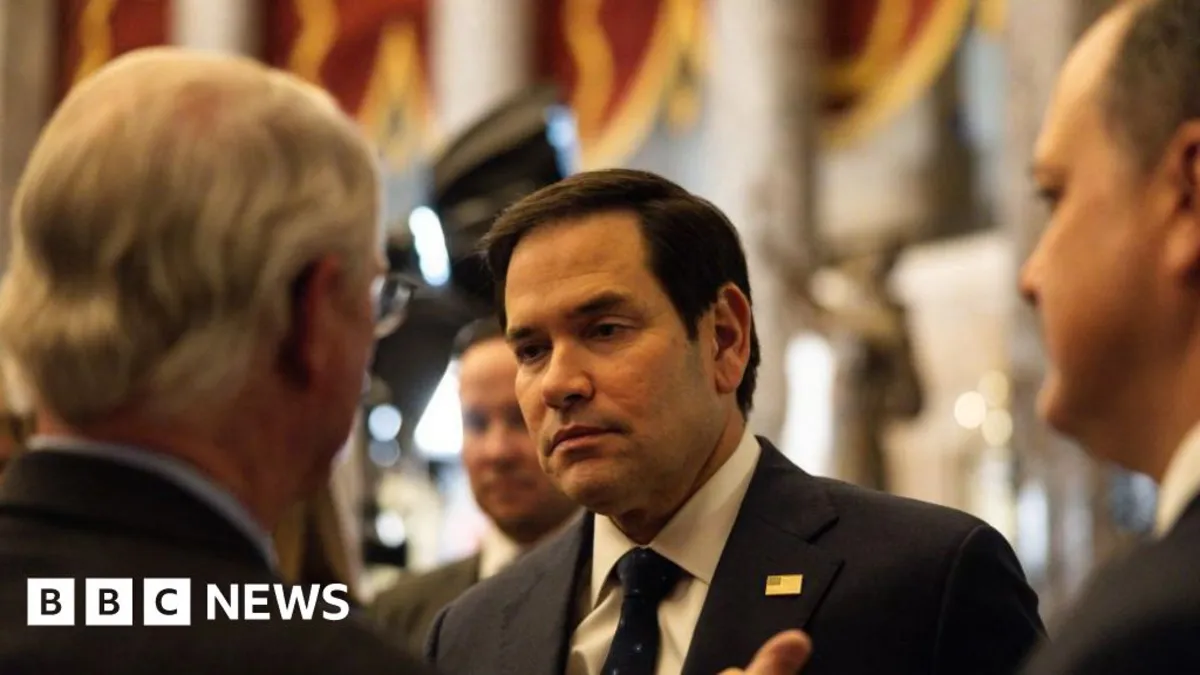
The US Agency for International Development (USAID) has experienced a significant overhaul, as the majority of its programmes have been terminated following a comprehensive six-week review. This announcement came from Secretary of State Marco Rubio, who outlined that these initiatives had cost tens of billions and often did not align with or actively harmed US interests. As a result, only 18% of the original programmes will continue, now under the management of the State Department.
Humanitarian organizations across the globe have expressed grave concerns regarding this controversial decision to end long-standing US aid programmes. They warn that the abrupt cessation of these initiatives is already leading to dire consequences, jeopardizing lives in numerous countries. The Trump administration has consistently signaled its intention to realign overseas spending with its America First strategy, prioritizing domestic interests over international aid.
Shortly after President Trump assumed office on January 20, 2021, thousands of USAID employees were placed on leave, and many staff members stationed overseas were recalled. On his first day in office, Trump signed an executive order to freeze foreign assistance funding and mandated a review of USAID's international operations, which was led by Elon Musk and the Department of Government Efficiency (commonly referred to as Doge).
In his post on X, Rubio confirmed that following the review, the US is officially terminating approximately 5,200 out of 6,200 USAID programmes. He stated, "In consultation with Congress, we intend for the remaining 18% of programmes we are keeping to be administered more effectively under the State Department." Rubio also expressed gratitude to Doge and State Department staff for their dedication and hard work in what he described as an overdue and historic reform.
The shutdown of USAID's programmes, which were previously funded by Congress, has drawn criticism from Democrats and various humanitarian organizations who have labeled the termination as illegal, leading to several lawsuits. USAID had been responsible for a broad range of missions worldwide, including famine detection, polio vaccinations, and establishing emergency food kitchens in conflict-affected areas.
The freeze in funding and the elimination of programmes have already started to impact vulnerable populations. In Sudan, for instance, the halt in humanitarian assistance has resulted in the closure of over 1,100 communal kitchens that were vital for those displaced by the ongoing civil war, affecting nearly two million people. In Oman, Afghan women who fled the Taliban to pursue higher education now face the possibility of returning home, as their USAID-funded scholarships have been unexpectedly terminated. Additionally, India's first medical clinic for transgender individuals has ceased operations in three cities due to the cessation of US foreign aid.
The recent changes to USAID's operational framework mark a significant shift in US foreign aid policy, raising critical questions about the future of international assistance and its implications for millions around the world. As the situation develops, the global community will be watching closely to see how these reforms play out and what they mean for humanitarian efforts worldwide.